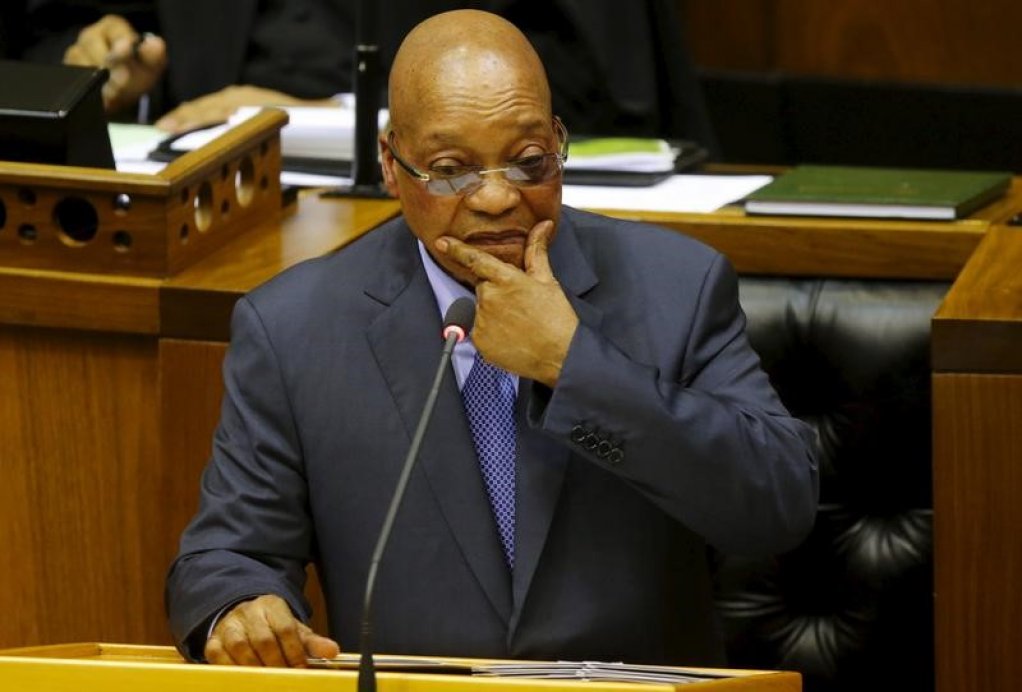President Jacob Zuma will on Thursday face yet another legal hurdle in the Supreme Court of Appeal (SCA) as he seeks leave to appeal the decision by the North Gauteng High Court in Pretoria in the spy tapes saga.
In 2016, a full bench of judges overturned the National Prosecuting Authority's (NPA's) decision to drop the 783 corruption charges relating to fraud, racketeering and money laundering against Zuma.
The long-standing matter was brought by opposition party the Democratic Alliance (DA).
Both the NPA and Zuma turned to the SCA after the High Court denied them direct access for an appeal.
In April 2009, a decision by then NPA head Mokotedi Mpshe determined that transcripts of telephone conversations between then Scorpions boss Leonard McCarthy and former NPA boss Bulelani Ngcuka showed political interference in the decision to charge Zuma.
Zuma in his replying affidavit seeking leave to appeal says he believes there is a reasonable prospect for the SCA to come to a different conclusion from the High Court on both "factual and legal issues" in the matter.
He claims the DA misunderstood the basis of his application, adding that there are competing interpretations about where the law stands regarding the powers of the National Director of Public Prosecutions (NDPP).
At the heart of the president's argument is the issue of irrationality. He insists that Mpshe made a rational decision.
"Although Mr Mpshe considered the merits of the case against Mr Zuma, his statement is clear to the effect that he considered that the public interest basis for declining to continue with the prosecution outweighed the merits.
"This was perfectly rational," read the court papers.
'Considerations of policy and justice'
Both parties also defended the NPA's discretionary powers, labelling the DA's argument as off the mark.
They said the DA's contention that the court could overturn the decision but that the NDPP could not, was "wrong in principle and offensive to the powers of the NDPP and the NPA generally in deciding to prosecute or terminate a prosecution".
In September 2016, the Constitutional Court rejected a bid by the NPA to appeal the High Court judgment, citing the pending SCA matter as a reason.
At the time, the NPA said the High Court findings raised constitutional issues and concerns over separation of powers prescripts, which could affect its functioning and powers of the office.
But the DA in its responses said the president was finding it difficult to deal with the court's findings of procedural irrationality.
It also said the president did not understand the findings that show Mpshe failed to apply his mind to the aspect of the test to be applied in abuse of process cases.
The party argues that in a fair trial the judge must weigh considerations of policy and justice.
"More particularly the public interest in ensuring that those that are charged with grave crimes should be tried, must be weighed against the competing public interests in not conveying the impression that the court will adopt the approach that the end justifies the means," said the DA.
The charges against Zuma were dropped in 2009 just before Zuma was sworn in for his first term as president, but the DA wanted the charges to be reinstated.
The matter is set down for Thursday and Friday.
EMAIL THIS ARTICLE SAVE THIS ARTICLE
To subscribe email subscriptions@creamermedia.co.za or click here
To advertise email advertising@creamermedia.co.za or click here











